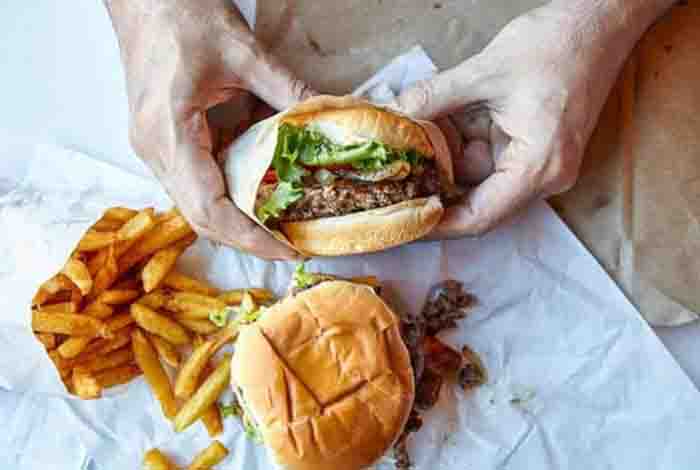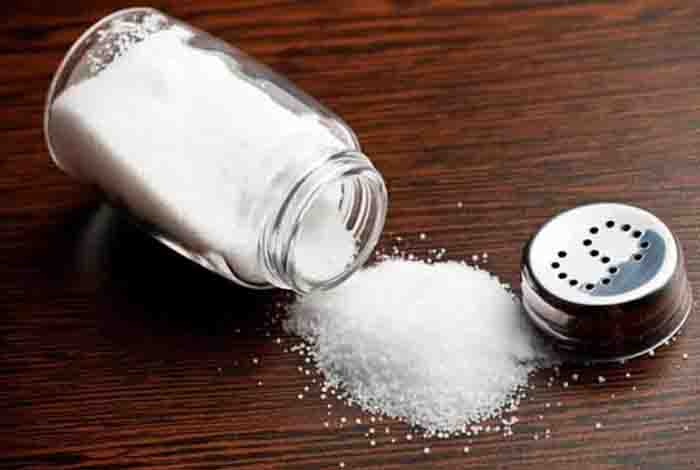
Add Years to Your Life by Curbing Your Salt Intake

French fries, pretzels, pizza, potato chips, all these names are enough to create an immediate salty craving in us. The only problem lies in the fact that we are far exceeding the daily recommended dosage of sodium by eating these junk foods and processed foods. Fortunately, a great reason to be happy is that limiting salt intake can actually add years to your life, even if you are a healthy individual.
Sonya Angelone, a registered dietitian (RD) explains that western diets contain too much sodium and because people consume it in excess, they unintentionally significantly increase their risk of cardiovascular diseases, stomach cancer and stroke . A research [1] also indicates that excessive sodium consumption can lead to brittle bones and other bone issues, in both post-menopausal women and young girls.
A “Salty” Affair

Angelone says that excessive sodium consumption is bad for cardiovascular health in multiple ways. For many people, sodium consumption or salt intake in excess can raise their blood pressure. She stresses that few people are rather sensitive to sodium and can’t consume more than 1500 mg per day (that’s almost less than 3/4th teaspoon of salt). If they consume more sodium, there blood pressure immediately elevates.
She further adds that even if you are a healthy individual, you still might be harming yourself with excessive sodium consumption. Dr. Frank Sacks, professor, Harvard T.H. Chan School of Public Health, explains that sodium damages the ability of a blood vessel to dilate, thereby increasing blood flow towards the tissues. It also hampers the health of endothelial lining, which lines our arteries. Excessive sodium stiffens the endothelial lining cell, thereby preventing the release of nitric oxide, which help keep your arteries flexible.
A study published in the journal Circulation [2] revealed that every 1,000- milligram increase in your sodium intake, increases your risk for cardiovascular diseases by 17%. You might also experience bloating due to long-term excessive sodium consumption. This might also lead to puffiness in the face, under eye bags and swollen fingers. You might also feel that your rings have become tight. This is in part because sodium works like a sponge and keeps absorbing all the fluids. What you don’t know is the heart in forced to pump more blood through the arteries.
Daily Sodium Recommendations

The American Heart Association reveals that consuming only 500 milligrams of sodium each day is sufficient for carrying out our bodily functions. Unfortunately, we generally consume seven times this requirement and accounting to almost 3,400 mg of sodium. This much salt is equivalent to one-and-half teaspoons of salt each day.
The recent U.S. government dietary regulations [3] recommend consumption of 2,300 milligrams each day. That is equivalent to one teaspoon salt. While people suffering from diabetes, heart diseases or kidney diseases are not recommended the same dosage and considered differently from general U.S. population. A recent study that was published in the journal Circulation revealed that limiting sodium intake to 1,500 mg each day has shown a considerable decrease in the occurrence of cardiovascular diseases.
Lowering your daily sodium intake to 1,500 mg reduces the blood pressure. This limit is especially crucial for people having a high risk of strokes, heart attacks, who are above 60 years of age and those who have hypertension. Few other studies have absurdly purported harm even at lower sodium intake and these are practically flawed, according to Lawrence J. Appel, co-author of the study.
Another great reason for food industry to start policing the amount of sodium they are using to cook or process foods is that compliance with the daily recommended dosage of sodium by the U.S. Food and Drug Administration (FDA), can prevent 450000 cardiovascular disease new cases and 83000 deaths in two decades. This study was also published in PLOS Medicine [4].
That’s a big amount of sodium to be slashed.










